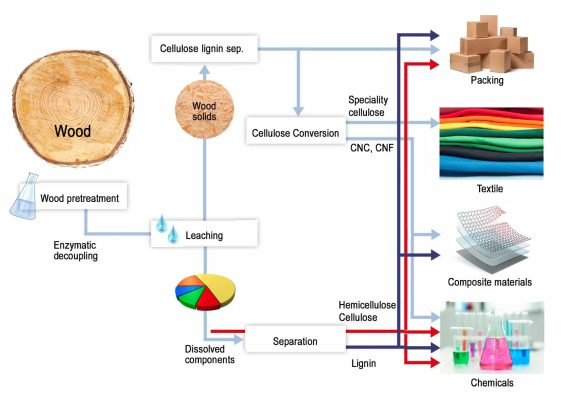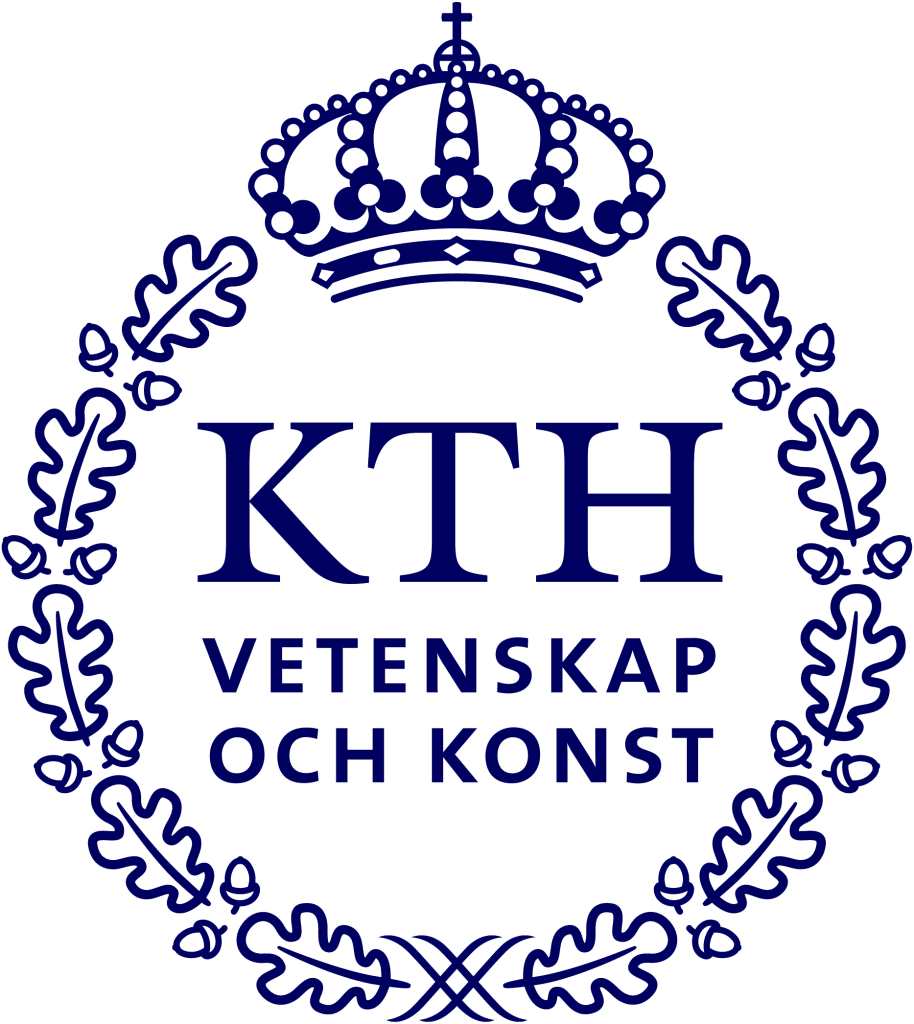Program 1: Wood components – extraction, characterization and properties (2019 – 2023)
Studying of wood processing steps in a materials biorefinery perspective to provide wood components – cellulose, hemicellulose and lignin – with defined properties. Using detailed characterization methods to understand the fundamentals of different process steps.

Research program
The main target in Program 1 is to provide detailed insights into wood processing, and to deepen the understanding of the chemical and structural properties of wood polymers in native and processed states. The heterogeneity in the molecular structures found in wood and their complex interactions at nano- and macroscales are fundamental for their structural function in plant cell walls. These strong interactions, as well as the respective chemical complexity of the wood polymers, also contributes to the recalcitrance of lignocellulosic biomass towards degradation and fractionation into well-defined streams. Molecular and structural changes take place after different pretreatment and fractionation steps, and these are today poorly described and understood. Here, we aim to deepen the understanding of such processes to enable a knowledge-based foundation for mild and sustainable tailor-made pretreatment and fractionation methods, that can be combined into different biorefinery concepts.
With the complex streams generated, comprising various wood polymers, oligomers and monomers, high demands on the down-stream processing becomes evident. Membrane filtration is commonly applied, which is an energy-demanding step that can benefit significantly from optimization. Furthermore, a deeper understanding of mass-transport phenomena, and their limitations, is of key importance in unit operations such as separation and fractionation.
Enzymes can play an important role in wood decomposition as they act very precisely on specific chemical bonds in the plant cell wall. We discover novel enzymes, map their structural-functional relationships and use them to improve wood fractionation and decomposition. A major effort in program 1 is to gain deeper insights to what actually happens with the biomass as a consequence of different unit operations, which requires advanced analyses of both chemical and structural changes. Therefore, we also work towards detailed understanding of the wood polymers, developing fractionation methods, allowing for detailed characterization combined with computational modelling.
Scientific impact
To understand membrane filtration in detail, advanced experimental in-house equipment, for studying fouling phenomena, has been developed as an important working tool that together with modelling efforts leads to improved understanding of filtration and dewatering. Combined with studies of mass-transport phenomena this creates a basis for deeper understanding of wood processing unit operations.
The linkage between carbohydrates and lignin is contributing to the recalcitrance of wood, thereby hindering efficient decomposition and processing. We have discovered enzymes able to cleave these bonds, and their functions are explored in detail. Together with extraction methods for isolation of fractions rich in lignin-carbohydrate complexes and developed analytics, further insights into the nature of such chemical bonds and how they are influenced by enzymatic action is gained.
Lignin, a heterogenous aromatic polymer is poorly understood, which is a major bottleneck in controlled processing and valorization. We have developed a green solvent sequence to refine technical lignins to relatively more homogeneous fractions as a foundation for further valorization. As an example, the high content of polyphenol moieties in lignin enables both oxidative and reductive interconversions of intact biopolymers on electrochemical interfaces.
Our research also provides deeper understanding of the structures and properties of hemicelluloses and lignins, where analytical fractionation, modelling and analytical methods are combined.
UN Sustainability Development Goals
Program manager
Lisbeth Olsson
Professor, Chalmers





